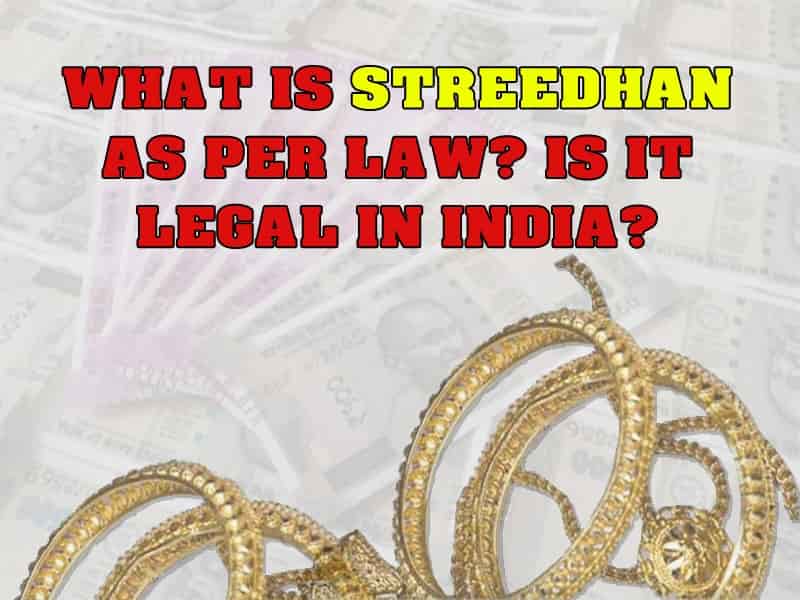In India, the concept of Streedhan holds deep cultural and legal significance, particularly under Hindu law. The term “Streedhan” is derived from the Sanskrit words “Stri” (meaning woman) and “Dhan” (meaning wealth or property), literally translating to a woman’s wealth. This wealth can include gifts of movable and immovable property, jewellery, cash, and other valuables that a woman receives at various stages of her life, such as before marriage, during marriage ceremonies, during childbirth, and even during her widowhood.
What Constitutes Streedhan?
- Pre-marriage gifts: Any assets, cash, or valuables a woman receives from her parents, relatives, or friends before marriage.
- Gifts at the time of marriage: This is the bulk of what is typically referred to as Streedhan. It includes any jewellery, clothes, money, or property given by her parents, in-laws, husband, and well-wishers during the marriage ceremonies.
- Gifts after marriage: Any items or assets given to a woman after marriage, either by her in-laws or her husband, including gifts at childbirth.
- Voluntary gifts: Anything that the woman receives as a gift from her family, friends, or even her in-laws or husband, provided it is given without coercion.
Legal Rights Over Streedhan
One of the critical legal aspects of Streedhan is that a woman has absolute and exclusive rights over it. It is her personal property, and she can use or dispose of it as she sees fit. According to Hindu law and other legal interpretations, a woman retains ownership of her Streedhan even if her marriage dissolves or if she becomes a widow. The husband or his family cannot claim or misuse it without her explicit consent.
The recognition of Streedhan strengthens a woman’s financial autonomy, ensuring that she has a secure source of wealth throughout her life. Even if the woman lives in her husband’s household, her Streedhan remains her exclusive property.
Difference Between Dowry and Streedhan
A common point of confusion is the distinction between Streedhan and Dowry. While dowry refers to any property or money that the groom or his family demands as a condition of the marriage, Streedhan is different in a few key ways:
- Voluntary nature: Streedhan is given voluntarily to the woman by her family or in-laws, while dowry is often demanded as a precondition to marriage.
- Ownership: Streedhan is the exclusive property of the woman, but dowry is often seen as the property of the groom’s family.
- Legality: Streedhan is perfectly legal under Indian law and is seen as a rightful gift to the woman. Dowry, conversely, is illegal under the Dowry Prohibition Act of 1961, which bans both giving and receiving dowry due to its coercive and exploitative nature.
Why the Confusion?
In many parts of India, dowry and Streedhan are often confused because both involve the transfer of assets and gifts during marriage. However, Streedhan has a much broader and positive foundation. It includes voluntary gifts meant to support a woman’s independence, and it’s recognised by law as her personal property. Dowry, in contrast, often has negative connotations because it can be used as a tool of harassment and exploitation in some marriages, where the groom’s family pressures the bride’s family for more money or goods.
Legal Protections for Women in India
In cases where a woman’s Streedhan is unlawfully taken away or withheld, she has legal recourse to reclaim it. The Protection of Women from Domestic Violence Act, 2005, includes provisions that allow a woman to seek restitution of her Streedhan in cases where her husband or in-laws deny her access to it. Additionally, under Sections 405 and 406 of the Indian Penal Code (IPC), wrongful retention of Streedhan by the husband or in-laws can amount to a criminal breach of trust.
The recognition of Streedhan in Indian law plays a crucial role in safeguarding the financial rights of women, especially in situations where marriages may turn sour or in cases of widowhood. In India, where financial dependency on the male members of the family can be high, Streedhan serves as a buffer to provide a woman with a sense of security and independence.
Conclusion
The concept of Streedhan is not just an ancient tradition but a legal right that empowers women to control their wealth. Unlike dowry, which is illegal and often tied to social evils, Streedhan is a form of financial independence and security fully supported by law. Understanding this distinction is essential for promoting women’s rights and ensuring their financial well-being in Indian society.

